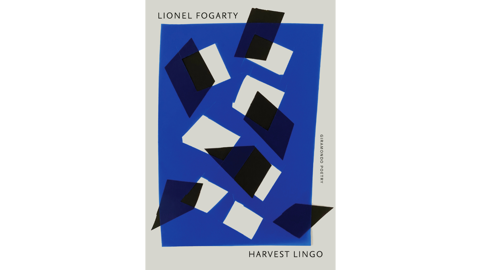Award for Indigenous Writing Shortlist
Title: Harvest Lingo
Author: Lionel Fogarty
Publisher: Giramondo Publishing
Harvest Lingo is the fourteenth collection of poems by Lionel Fogarty, a Murri man with traditional connections to the Yugambeh people from south of Brisbane and the Kudjela people of north Queensland. He is a leading Indigenous rights activist, and one of Australia’s foremost poets, and this collection displays all of the urgency, energy and linguistic audacity for which Fogarty is known.
At the centre of the collection is a series of poems written in India. Deeply empathetic, these poems are remarkable for the connections they draw between the social problems the poet encounters in this country – poverty, class division, corruption – and those he sees in contemporary Australia, besetting his own people.
Other poems tell of encounters between people and between cultures, address historical and cultural issues and political events, and pay tribute to important Indigenous figures. There are intensely felt lyrics of personal experience, and poems which contemplate Fogarty’s own position as a poet and an activist, speaking with and for his community. Fogarty’s poems are bold and fierce, at times challenging and confronting, moved by strong rhythms and a remarkable freedom with language. They are an expression of the ‘harvest lingo’ which gives the collection its title.
Judges' report
Lionel Fogarty’s anthology of poems covers an enormous breadth of subject matter, marrying humanistic compassion and intelligence with remarkable formal experimentation. Topics covered by the poems include international terrorism, the Internet, medicine, and Emiliano Zapata, but Fogarty brilliantly collapses categories and gives a true sense of the interrelatedness of phenomena. Particularly striking are the 'India Poems', which form the second part of the anthology and discuss the Indian caste system and economic inequality in relationship with the position of Australia’s First Peoples. The poems emphasise revolution as a global movement and the need to cross territorial boundaries; at the same time, they contain achingly personal and poignant reflections on death, desire, and memory. The style of the poems is intellectually and aesthetically challenging without being abstruse. Fogarty often defies easy interpretation, but never retreats into obscurantism. Some lines strike the reader as a blinding flash of insight: 'Fascism is the dead flower for every dead voice'. Above all, Harvest Lingo presents a truly unique poetic vision. Despite the diversity of the poems, there is a consistent sense throughout that political struggle without love is ultimately futile. As Fogarty writes in 'Stay Alive Next 16 Years (Fish Trap)': 'We don’t want desire to be dead leaves.' It is rare to encounter a book which operates so effortlessly on the intellectual, poetic, and political registers.
Extract
An extract from Harvest Lingo can be found here.
